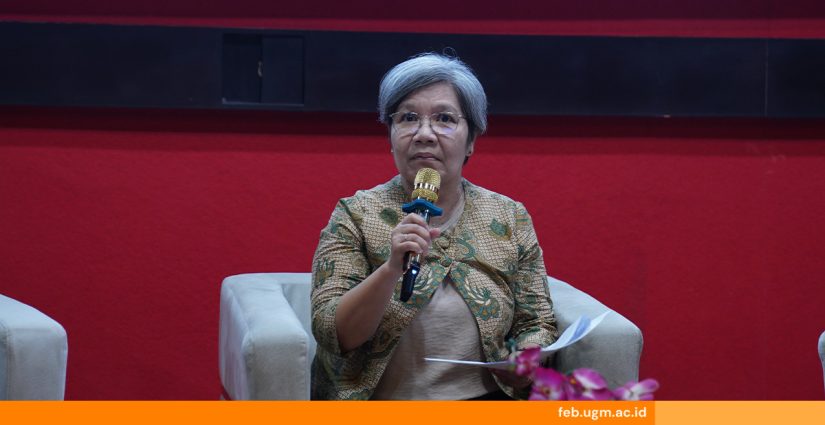
In the era of Industry 5.0, artificial intelligence (AI) has become increasingly widespread. Beyond simply making human life easier, AI has already demonstrated its ability to enhance efficiency and workplace productivity across various sectors. Thus, this raises a bigger question, can AI also boost national productivity and economic growth?
Professor of Corporate Finance at Bina Nusantara University, Prof. Yanthi R.I. Hutagaol-Martowidjojo, stated that AI is crucial in enhancing corporate sustainability while driving Indonesia’s economic growth. AI is a vital tool that can assist companies in adapting to global trends and sustainable business practices.
“Both SMEs and large companies contribute significantly to the national GDP. However, in recent years, both have faced challenges threatening their businesses, such as declining export demand in global markets and increasing demands for sustainable business practices. This is where AI plays a role in promoting sustainability and strengthening economic growth,” he explained at the I GET CODE 2025 Conference titled “Navigating the Future: The Role of AI in Shaping Economic and Social Dynamics in Industry 5.0” organised by the Association of Master’s Students in Development Economics (HIMMEP) at Djarum Hall, Pertamina Tower, FEB UGM on Saturday (23/08).
Prof. Yanthi further explained that in today’s era of rapid transformation and growing environmental awareness, businesses can no longer afford to focus solely on short-term goals. Companies also need to consider long-term objectives that align with sustainability. In this context, AI becomes essential as the main enabler for businesses to identify the needs and concerns of various stakeholders, not just their internal priorities. Technologies such as generative AI, predictive AI, and prescriptive AI allow companies to conduct analysis and forecasting more quickly, transparently, and in line with the latest trends and regulations. Eventually, this could result in greater productivity and the cultivation of a more sustainable business culture.
“The use of AI is not a problem as long as it is applied ethically and responsibly. Because the idea is not to replace the human learning process but to allow us to collaborate with the technology at hand. Because even with AI, a human touch must still be involved,” she explained.
To address whether a company or MSME can adopt AI, Prof. Yanthi introduced a four-quadrant adoption model that outlines strategies for AI implementation based on company size and the intensity of data they possess. Large companies with limited data, for instance, are encouraged to build a strong AI foundation while expanding data collection. Conversely, large companies with access to big data are advised to strengthen their foundation further while hiring data scientists. The recommended strategy for MSMEs with limited data is to purchase AI technology and adapt it to their business systems. Meanwhile, tech-based MSMEs with big data are encouraged to build their own AI foundation, carry out system configuration, and collaborate with larger corporations to improve efficiency.
According to Prof. Yanthi, adopting AI at the company level is not only important from a microeconomic perspective, but also carries significant macroeconomic implications. As more companies succeed in meeting sustainability standards, their productivity will rise. If this trend spreads widely across businesses and MSMEs in Indonesia, national productivity will increase, which will help drive GDP growth. Several international studies have confirmed this link by demonstrating the substantial impact of corporate sustainability practices on the macroeconomic level. Unfortunately, such a trend has yet to take full shape in Indonesia.
In conclusion, Prof. Yanthi highlighted the need for further research on her proposed AI adoption model. She recommended that future studies conduct empirical testing of the model’s effectiveness, examine the trade-offs between efficiency gains from AI and the energy cost, and explore more deeply how sustainable practices at the corporate level ultimately influence macroeconomic indicators.
Report by: Najwah Ariella Puteri
Editor: Kurnia Ekaptiningrum
Sustainable Development Goals









